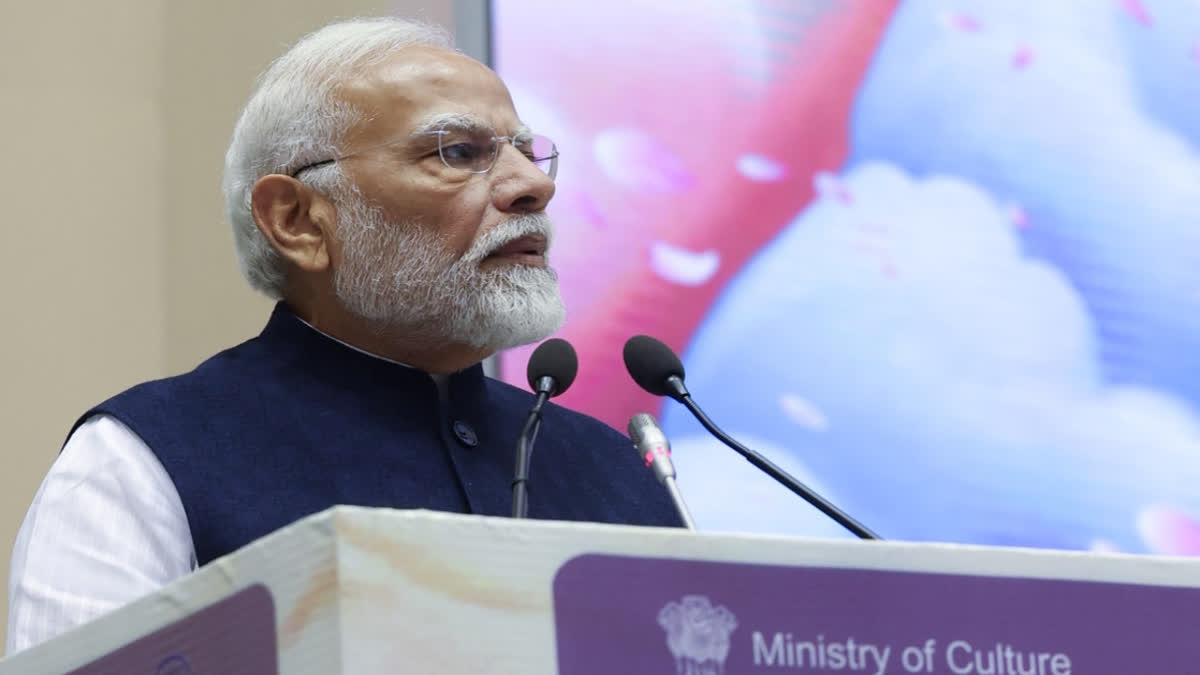New Delhi:Prime Minister Narendra Modi on Thursday declared that the government will take many initiatives for the preservation and development of the Pali language and the sacred texts, the Buddha’s teachings written in it.
"Today is a historic occasion, the Abhidhamma Day," the Prime Minister noted, saying Pali was the language in which Gautam Buddha's teachings were conveyed on this day, now the language has been given a classical status."
"Therefore, Pali is crucial to understanding the Dhamma. A language is simply not just a mode of communication, it is the soul of a civilisation, it’s culture, it's heritage. It is our responsibility to keep Pali alive and through it the Buddha's message,” he said.
The recent recognition of Pali by the Union Cabinet, as a classical language, along with four other languages, enhances the significance of this year's Abhidhamma Divas celebrations as Buddha's teachings on Abhidhamma are originally available in Pali language.
Speaking at the inauguration of the International Abhidhamma Divas and the celebration for the recognition of Pali as a classical language, organised by the Ministry of Culture in collaboration with the International Buddhist Confederation (IBC), the Prime Minister emphasised that though Pali was not in usage currently, a language, literature, art and spiritual traditions express the heritage of a nation, which is its identity.
"The government of India will preserve and promote Pali," he said. He further added that before independence centuries of colonial rule and the invaders tried to wipe out India’s identity, and those with a "slave mindset" did so after our independence.
"The eco-system then had taken India away from its heritage, and India was left far behind. The government of India is making all the efforts to revive India's Buddhist heritage. In the last few years, we have brought back over 600 artefacts to India, most of which were Buddhist objects," he said.
